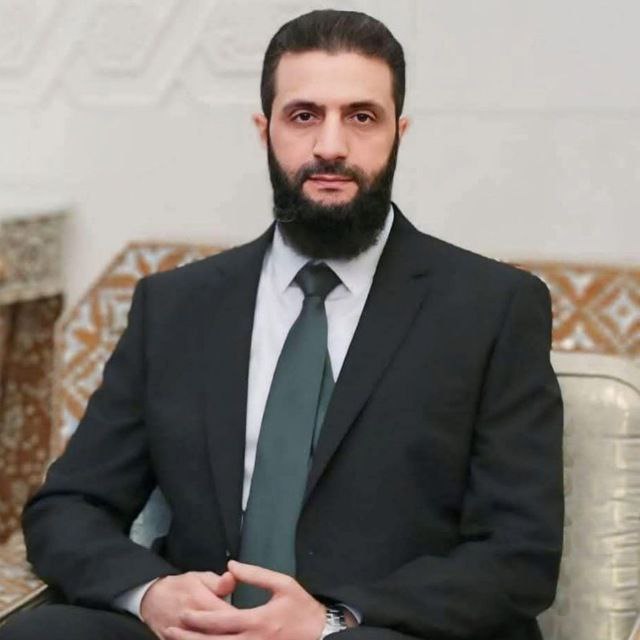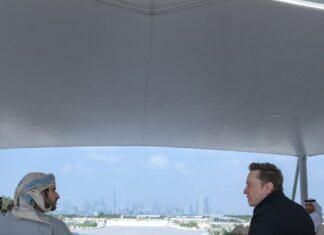
Ahmad al-Sharaa, General Commander of the Command of Military Operations (CMO) coalition and a key administrator in the Syrian Transitional Government (STG) delivered a statement detailing his vision for Syria’s future governance and regional stability. Al-Sharaa emphasized priorities such as political reform, reconstruction, and fostering inclusivity among Syria’s diverse communities.
“Liberating Syria ensures the security of the region and the Gulf for the next 50 years,” Al-Sharaa declared, underlining the broader regional implications of Syria’s stability. Acknowledging the sacrifices made during the liberation, he stated, “I do not consider myself the liberator of Syria; everyone who made sacrifices contributed. We ensured during the process that there were no civilian casualties or displacements.”
Path to Elections
Al-Sharaa presented a multi-year roadmap for Syria’s political future, starting with the drafting of a new constitution. “Drafting the constitution could take around three years, aiming for a robust and enduring framework,” he explained, adding that organizing elections might take an additional year to ensure accurate census data and peaceful democratic processes.
He described the process as deliberate, with several political stages preceding the selection of Syria’s future president. A National Dialogue Conference, including representatives from all segments of Syrian society, will provide a platform for consensus-building and reconciliation.
Addressing concerns about division or federalism, Al-Sharaa stated, “We will manage Syria with a state mentality; there will be no division or federalism.” He affirmed that protests would remain a legitimate avenue for citizens to express their views, provided public institutions were not harmed.
An End to Armed Groups
A significant announcement was the planned dissolution of Hayat Tahrir al-Sham (HTS). “We will announce the dissolution of Hayat Tahrir al-Sham at the National Dialogue Conference,” he revealed, marking a pivotal step toward consolidating the transitional government’s authority.
Negotiations with the Syrian Democratic Forces (SDF) to resolve the crisis in northeastern Syria were also discussed. Al-Sharaa emphasized the importance of the Kurdish population, stating, “Kurds are an integral part of the Syrian population.” Plans for integrating Kurdish forces into the Ministry of Defense were also outlined. However, he clarified that Syria would not allow its territory to be used as a launching pad for PKK attacks.
Regional Relations and International Criticism
Al-Sharaa expressed hope for improved relations with regional powers, particularly calling on Iran to reconsider its interventions in the Middle East. “I hope Iran reconsiders its interventions in the region,” he said while criticizing Iranian actions. Nonetheless, he emphasized Syria’s commitment to fulfilling its state duties, despite the challenges posed by Iran’s involvement.
On relations with Russia, Al-Sharaa stressed maintaining respect. “We do not want Russia to leave in a manner unbefitting its relationship with Syria,” he said.
He noted positive developments with Saudi Arabia, commending recent statements from Riyadh as “very positive” and highlighting Saudi Arabia’s key role in Syria’s stability and development.
Regarding the United States, Al-Sharaa expressed optimism about the incoming administration. “We hope the incoming U.S. administration does not follow the same approach as its predecessor,” he remarked.
Addressing Compensation and Shortcomings
Al-Sharaa voiced frustration with international organizations, particularly the UN, accusing them of failing to address Syria’s humanitarian crises. “The UN has failed to release a single detainee or return a single refugee to Syria,” he asserted, emphasizing the need for domestic solutions to pressing issues.
To address wartime damages, the transitional government is establishing legal committees to seek compensation from countries or groups responsible. “Syria will not be a source of trouble for anyone,” he pledged, positioning this as part of the government’s broader commitment to stability.
Despite the challenges, Al-Sharaa expressed optimism about the future. “Syria needs a year for citizens to witness substantial improvements in services,” he predicted, underscoring the STG’s dedication to rebuilding.
Building a Unified Future
Al-Sharaa’s remarks reflected a vision of unity and collaboration, alongside a commitment to inclusivity and long-term stability. “The National Dialogue Conference will include all components of Syrian society,” he affirmed, signaling a broad-based approach to shaping the country’s future. As Syria moves forward, the STG faces the monumental tasks of rebuilding infrastructure, fostering reconciliation, and establishing a political framework capable of ensuring lasting peace.








